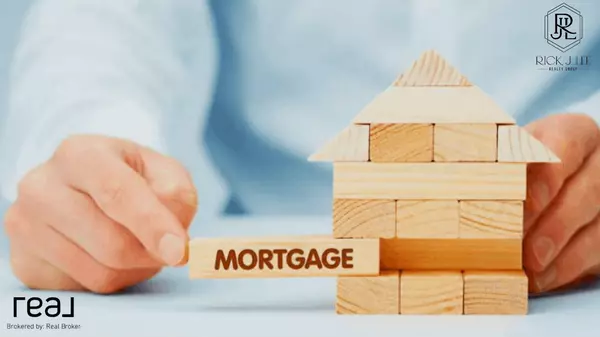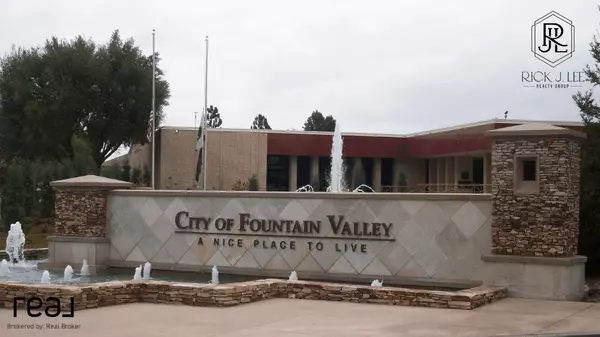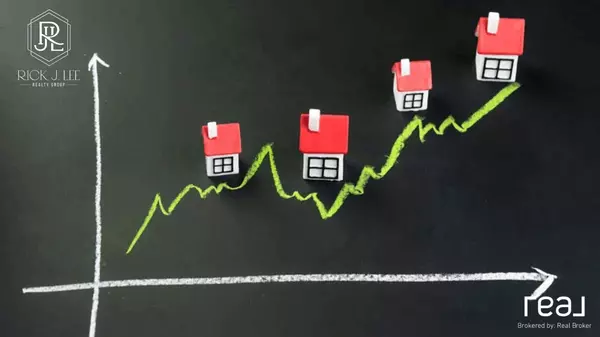
The Hidden Costs of Homeownership: Budgeting Beyond the Mortgage
Owning a home is a dream come true for many, but the financial journey extends far beyond signing the mortgage papers. In this comprehensive guide, we will unravel the hidden costs of homeownership, providing you with essential insights to navigate the uncharted waters of budgeting beyond the mortgage. The Initial Hit: Closing Costs and Beyond The excitement of buying a home is often overshadowed by the initial hit of closing costs. Beyond the down payment, prospective homeowners are faced with a plethora of expenses, including appraisal fees, title insurance, and legal costs. These are the silent contributors to the upfront investment, and understanding them is the first step to financial preparedness. Closing costs can be an unexpected financial hurdle for new homeowners, but they are a crucial part of the homebuying process. These costs typically include appraisal fees, title insurance, and attorney fees. It's essential to factor these expenses into your budget to avoid any last-minute financial surprises. The Subtle Culprits: Maintenance and Repairs Once you've settled into your dream home, the subtle culprits of maintenance and repairs start to emerge. From leaky roofs to malfunctioning appliances, unforeseen issues can strike at any moment. We'll explore how regular maintenance and strategic planning can mitigate the financial impact of these unexpected surprises. Regular maintenance is key to preventing costly repairs down the line. Consider creating a home maintenance checklist and budgeting for routine tasks, such as HVAC servicing and gutter cleaning. By staying proactive, you can catch potential issues before they become major financial burdens. Monthly Strains: Utility Bills and Homeowner's Insurance While the mortgage may be a fixed monthly expense, utility bills and homeowner's insurance can fluctuate and catch homeowners off guard. We'll break down strategies to anticipate and manage these variable costs, ensuring that your monthly budget stays on track. Budgeting for fluctuating expenses like utility bills and homeowner's insurance requires a proactive approach. Consider energy-efficient upgrades to your home to reduce utility costs and shop around for the best insurance rates. These small steps can make a significant difference in your monthly financial stability. Long-Term Commitments: Property Taxes and HOA Fees Property taxes and Homeowners Association (HOA) fees are often underestimated in the grand scheme of homeownership. Delve into the long-term commitments that come with these expenses, understanding how they evolve over time and impact your overall financial stability. Property taxes and HOA fees are ongoing expenses that can increase over time. It's crucial to account for these potential increases in your long-term budget planning. Understanding the trends in your local property market and the rules of your HOA can help you prepare for these financial commitments. Emergency Preparedness: The Rainy Day Fund No homeownership journey is complete without addressing the importance of an emergency fund. Explore the necessity of having a financial safety net to cover unexpected costs, from urgent repairs to job loss, providing peace of mind in the face of uncertainty. Building an emergency fund is a critical aspect of responsible homeownership. Aim to save at least three to six months' worth of living expenses in case of unforeseen circumstances. This fund can act as a financial cushion during tough times, ensuring that you can weather any storm that comes your way. The Market's Influence: Home Value Fluctuations Home values aren't static, and understanding how market fluctuations can affect your investment is crucial. We'll discuss how changes in the real estate market can impact your home's value and explore strategies to navigate these fluctuations effectively. The real estate market is dynamic, and home values can fluctuate based on various factors. Keep an eye on local market trends and make strategic home improvements to maintain or increase your property's value. Understanding the market can empower you to make informed decisions about your home and its long-term financial impact. The Underrated Costs: Landscaping and Home Improvements The desire to enhance your living space often leads to landscaping and home improvement projects. Uncover the underrated costs associated with these endeavors, from garden makeovers to kitchen renovations, and learn how to approach them strategically without breaking the bank. Landscaping and home improvements can add significant value to your home, but they come with their own set of costs. Prioritize projects that align with your budget and focus on improvements that offer a good return on investment. This way, you can enhance your living space without sacrificing your financial well-being. Financing the Future: Retirement and Homeownership As we age, the relationship between homeownership and retirement becomes increasingly complex. We'll explore the financial implications of owning a home during retirement and discuss proactive strategies to ensure a comfortable and financially secure post-work life. Owning a home during retirement requires careful financial planning. Consider factors such as property taxes, maintenance costs, and the potential need for home modifications to age in place. Exploring options like downsizing or reverse mortgages can also be part of a strategic plan to ensure your home remains a financial asset during your retirement years. Follow me on Social Media 👋 Instagram 👉 https://www.instagram.com/rickjleehomes/ 👋 Facebook 👉 https://www.facebook.com/RickJLeehomes 🎥 WATCH NEXT 👉 Subscribe for more Videos: https://www.youtube.com/channel/UCytj... 🔻CONTACT INFO🔻 🏠 WANT TO TALK REAL ESTATE? Fill out this contact form here https://www.rickjleehomes.com/contact 🏠 SEARCH FOR LONG BEACH AND ORANGE COUNTY HOMES FOR SALE https://www.rickjleehomes.com/ 🏠 FREE HOME VALUATION https://www.rickjleehomes.com/evaluation ✔️ CHECK ME OUT ON GOOGLE https://g.page/r/CdWWiyYU6NKIEAE Rick J Lee Rick J Lee Homes Realtor @ ΓEA⅃ Broker DRE # 02130981 📞C:714-943-1598 📧rickjleehomes@gmail.com 🖥RickJLeehomes.com

The Role of Social Media in Real Estate Marketing
In the ever-evolving landscape of real estate marketing, the symbiotic relationship with social media has become a game-changer. As potential buyers and sellers increasingly turn to online platforms, understanding the nuances of leveraging social media is paramount. This article aims to unravel the strategies, success stories, and transformative impact that social media holds for real estate professionals seeking to thrive in the digital era. The Social Media Revolution 1. Shaping Brand Identity through Instagram In the visually driven world of real estate, Instagram emerges as a powerhouse. Beyond merely showcasing properties, Instagram allows real estate professionals to craft a captivating brand identity. Through high-quality images, engaging captions, and strategic use of hashtags, professionals can create a cohesive and visually appealing feed. Moreover, the platform's dynamic features like Stories and Reels offer opportunities to add a layer of personality, providing potential buyers with immersive and authentic glimpses into the world of listed properties. Pro Tip: Ensure a consistent aesthetic across your Instagram feed to reinforce brand identity and make a lasting impression on your audience. 2. Community Building on Facebook While Instagram focuses on visuals, Facebook excels in community building. Beyond being a platform for property listings, it provides a space for fostering engagement and building a sense of community. Real estate professionals can leverage features like Facebook Groups to create a space where potential buyers can connect, share experiences, and seek advice. By actively participating in these groups, professionals can establish themselves as not just sellers but trusted community members, enhancing their brand reputation. Pro Tip: Host virtual events or Q&A sessions within Facebook Groups to encourage interaction and strengthen community bonds. Twitter: The Art of Real-Time Engagement 3. Tweeting Your Way to Real Estate Success Twitter's real-time nature makes it an invaluable tool for real estate professionals. Crafting impactful tweets involves a delicate balance of sharing property updates, industry insights, and engaging with relevant conversations. By participating in trending topics and using popular hashtags, professionals can expand their reach and position themselves as active contributors to the real estate dialogue. Additionally, utilizing visual content, such as images and GIFs, enhances the tweet's visibility and engagement. Pro Tip: Schedule tweets strategically, aligning them with peak hours to maximize visibility and audience interaction. LinkedIn: Beyond Professional Networking 4. Positioning Yourself as a Real Estate Authority LinkedIn offers a unique platform for real estate professionals to go beyond traditional networking. By optimizing profiles with comprehensive information, endorsements, and recommendations, individuals can position themselves as authorities in the industry. Sharing thought leadership content, such as market trends, insights, and success stories, enhances credibility. Active engagement with industry-related posts and discussions further solidifies one's presence as a knowledgeable and respected figure. Pro Tip: Regularly update your LinkedIn profile with recent achievements and projects to showcase ongoing expertise. YouTube: Unveiling the Story of Properties 5. Visual Storytelling through YouTube In the age of visual content dominance, YouTube stands out as a potent platform for real estate professionals. Creating compelling videos that tell the story of properties can greatly impact a potential buyer's decision-making process. Property tours, client testimonials, and educational content can be powerful tools in building a brand narrative. Optimizing video titles, descriptions, and tags with relevant keywords ensures that these videos surface in searches, expanding their reach. Pro Tip: Encourage viewers to subscribe to your YouTube channel for regular updates on new property listings and informative content. Follow me on Social Media 👋 Instagram 👉 https://www.instagram.com/rickjleehomes/ 👋 Facebook 👉 https://www.facebook.com/RickJLeehomes 🎥 WATCH NEXT 👉 Subscribe for more Videos: https://www.youtube.com/channel/UCytj... 🔻CONTACT INFO🔻 🏠 WANT TO TALK REAL ESTATE? Fill out this contact form here https://www.rickjleehomes.com/contact 🏠 SEARCH FOR LONG BEACH AND ORANGE COUNTY HOMES FOR SALE https://www.rickjleehomes.com/ 🏠 FREE HOME VALUATION https://www.rickjleehomes.com/evaluation ✔️ CHECK ME OUT ON GOOGLE https://g.page/r/CdWWiyYU6NKIEAE Rick J Lee Rick J Lee Homes Realtor @ ΓEA⅃ Broker DRE # 02130981 📞C:714-943-1598 📧rickjleehomes@gmail.com 🖥RickJLeehomes.com

Investing in Vacation Rental Properties: Pros and Cons
Picture this: You own a piece of paradise, a vacation rental property where guests escape the mundane and experience a slice of luxury. But is this dreamy scenario all sunshine and pina coladas? Let's dissect the pros and cons of investing in vacation rental properties. Pros 1. Lucrative Returns: Cha-Ching! 💰 Investing in vacation rentals can be a financial game-changer. Imagine your property transforming into a cash register, with each booking ringing in profits. The demand for unique and well-located vacation rentals is on the rise, ensuring a steady flow of income. It's not just about property appreciation; it's about hearing the sweet sound of your investment paying off. And it's not just about the rental fees. Think about the potential for high occupancy rates, especially in prime seasons. The more guests you can accommodate, the more revenue you generate. With strategic pricing and thoughtful marketing, your vacation rental could become a lucrative venture. 2. Diversification of Portfolio: Beyond Stocks and Bonds Diversification is the secret sauce in any successful investment strategy. While stocks and bonds have their place, adding a vacation rental property to your portfolio introduces a tangible, real-world asset. Unlike the unpredictable fluctuations of the stock market, real estate tends to be more stable, providing a buffer against economic uncertainties. Imagine having your financial eggs in multiple baskets. If one market slumps, your vacation rental might become a beacon of stability. It's an opportunity to balance the volatility of traditional investments with the solidity of property ownership. A diversified portfolio is like a well-prepared traveler — equipped to weather different terrains. 3. Tax Advantages: Keep More of Your Profits Here's a little-known perk of vacation rental ownership: tax advantages. The government often smiles upon property investors, offering a range of deductions that can significantly impact your bottom line. Operating expenses, property management fees, and even mortgage interest may be eligible for tax deductions. It's like having a financial sidekick in the tax code, helping you retain more of your hard-earned money. Of course, it's crucial to consult with a tax professional to ensure you're navigating these benefits correctly. The tax advantages alone could tip the scales in favor of vacation rental investments, making them even more appealing to savvy investors. 4. Personal Use: Your Vacation Haven Owning a vacation rental isn't just about business; it's about creating your own haven. Imagine having a place to escape to, a retreat that's not only an investment but also a personal getaway. During off-peak seasons, when bookings might be slower, you have the freedom to enjoy the fruits of your investment. Picture yourself waking up to the sound of waves crashing or the serenity of a mountain sunrise. Your vacation property becomes a home away from home, a sanctuary for relaxation and rejuvenation. It's an investment that doesn't just offer financial returns but also provides a personal space for making memories and enjoying life. 5. Flexibility in Location: From Coast to Countryside One of the exciting aspects of vacation rental investments is the flexibility in choosing locations. Whether it's a beachfront condo, a cozy cabin in the woods, or an urban oasis, the possibilities are diverse. This flexibility allows investors to adapt to different markets and cater to various preferences. If the beach scene is thriving in the summer but slows down in the winter, perhaps a property in a ski resort area could balance the seasonal fluctuations. The ability to pivot based on market trends and demands is a strategic advantage. Vacation rental investors aren't confined to a single location; they can explore opportunities in different landscapes and climates, maximizing their potential for success. Cons 1. High Initial Costs: Breaking the Bank While the prospect of high returns is enticing, entering the vacation rental market requires a substantial upfront investment. Picture opening a treasure chest, only to find that it demands a hefty key in the form of property acquisition costs, furnishings, and potential renovations. The initial expense can be a significant barrier for aspiring vacation rental property owners. It's not just about purchasing a property; it's about ensuring that it meets the standards guests expect. From stylish furnishings to modern amenities, meeting these expectations often involves a substantial initial outlay. As the saying goes, you have to spend money to make money, but the key is finding a balance that aligns with your budget and investment goals. 2. Property Management Headaches: Not All Sunsets and Smiles Owning a vacation rental isn't all about leisurely strolls on the beach or enjoying the mountain breeze. The reality involves managing bookings, coordinating cleaning services, and addressing maintenance issues promptly. Imagine being on call 24/7, ready to respond to guest inquiries or handle unexpected problems. This hands-on approach to property management can be a significant time commitment, especially for those with multiple rental units. While some investors thrive in the role of a property manager, others may find the responsibilities overwhelming. It's crucial to assess whether you're prepared to wear the hat of both an investor and a hands-on manager or if delegating these tasks to professionals is a more suitable option. 3. Seasonal Fluctuations: The Ebb and Flow of Income Consider the seasonal nature of vacation rentals. While a beachfront property might flourish in the summer, attracting sun-seekers, it could experience a significant downturn in the colder months. Picture the demand for a mountain cabin during ski season compared to the lull in the warmer months. This seasonality introduces a level of unpredictability into the income stream. Successful investors understand these fluctuations and plan accordingly, perhaps diversifying their portfolio to include properties in different locations with varying peak seasons. It's like navigating the tides; understanding when to ride the wave and when to brace for a slowdown is crucial for long-term success. 4. Regulatory Hurdles: Navigating the Legal Landscape Imagine setting up your dream vacation rental only to discover that local regulations pose unforeseen challenges. Depending on the area, there may be strict rules governing short-term rentals, ranging from licensing requirements to zoning restrictions. Picture the frustration of investing in a property only to face legal hurdles that could result in fines or, in extreme cases, forced closure. Navigating the legal landscape is a critical aspect of vacation rental ownership. It involves thorough research into local regulations and proactive compliance with legal requirements. Picture it as laying a solid foundation for your investment, ensuring it stands on legal ground and minimizing the risk of legal complications down the road. 5. Market Saturation: Standing Out in a Sea of Rentals The rise of platforms like Airbnb has democratized the vacation rental market, providing both opportunities and challenges. Imagine your property as a unique shell on a crowded beach, competing for attention among countless others. Success in this environment requires more than just a beautiful property; it demands strategic marketing, exceptional guest experiences, and the ability to stand out in a sea of rentals. Consider the effort needed to maintain a stellar online presence, garner positive reviews, and differentiate your property from the competition. It's like crafting a unique story that captivates potential guests, inviting them to choose your rental over the myriad others available. Navigating this competitive landscape is an ongoing process that requires creativity, adaptability, and a commitment to excellence. Follow me on Social Media 👋 Instagram 👉 https://www.instagram.com/rickjleehomes/ 👋 Facebook 👉 https://www.facebook.com/RickJLeehomes 🎥 WATCH NEXT 👉 Subscribe for more Videos: https://www.youtube.com/channel/UCytj... 🔻CONTACT INFO🔻 🏠 WANT TO TALK REAL ESTATE? Fill out this contact form here https://www.rickjleehomes.com/contact 🏠 SEARCH FOR LONG BEACH AND ORANGE COUNTY HOMES FOR SALE https://www.rickjleehomes.com/ 🏠 FREE HOME VALUATION https://www.rickjleehomes.com/evaluation ✔️ CHECK ME OUT ON GOOGLE https://g.page/r/CdWWiyYU6NKIEAE Rick J Lee Rick J Lee Homes Realtor @ ΓEA⅃ Broker DRE # 02130981 📞C:714-943-1598 📧rickjleehomes@gmail.com 🖥RickJLeehomes.com
Categories
- All Blogs (167)
- Aliso Viejo, California (2)
- Anaheim, Calfornia (3)
- Beach House (2)
- Best places for surfers (1)
- Bixby Knolls (1)
- Buena Park, California (2)
- Buying and Selling Real Estate (28)
- California (2)
- California Beach House (2)
- Cerritos, California (1)
- Costa Mesa, California (1)
- Current Market (1)
- Cypress, CA (4)
- Dana Point, California (1)
- Downey, California (1)
- Equestrian (1)
- Fountain Valley, California (5)
- FSBO (1)
- Fullerton, California (1)
- Fur Parents (1)
- Garden Grove California (6)
- History (2)
- Holiday in Long Beach (1)
- home (12)
- Home Improvement (1)
- home value (7)
- Huntington Beach (5)
- Irvine, California (3)
- La Habra, California (1)
- Laguna Niguel, California (1)
- Lake Forest, California (1)
- Lakewood Event (1)
- Lakewood, California (15)
- Lifestyle (1)
- Listing (1)
- Long Beach Events (1)
- Long Beach Neighborhood (1)
- Long Beach, California (19)
- Los Alamitos (1)
- Los Alamitos, California (1)
- Market Reports (7)
- Mission Viejo, California (1)
- Mortgage Lender (1)
- Moving to Aliso Viejo, California (2)
- Moving to Anaheim, California (3)
- Moving to Buena Park, California (2)
- Moving to California (11)
- Moving to Cerritos, California (1)
- Moving to Costa Mesa, California (1)
- Moving to Cypress, CA (3)
- Moving to Dana Point, California (1)
- Moving to Downey, California (1)
- Moving to Fountain Valley, California (4)
- Moving to Fullterton, California (1)
- Moving to Garden Grove, California (5)
- Moving to Huntington Beach (5)
- Moving to Irvine, California (3)
- Moving to Lakewood (2)
- Moving to Lakewood, California (4)
- moving to Long Beach, California (12)
- Moving to Los Alamitos, California (1)
- Moving to Los Angeles (1)
- Moving to Mission Viejo, California (1)
- Moving to Newport, California (3)
- Moving to Orange County, California (20)
- Moving to Orange, California (1)
- Moving to Placentia, California (1)
- Moving to Rossmoor, California (1)
- Moving to San Clemente, California (2)
- Moving to Seal Beach, California (2)
- Moving to Signal Hill, California (2)
- Moving to Stanton, California (1)
- Moving to Tustin, California (2)
- Moving to Westminster, California (2)
- Newport Beach, California (3)
- Orange County, California (8)
- Orange, California (2)
- Placentia, California (1)
- Real Estate (34)
- Real Estate Agent (25)
- Rossmoor, California (1)
- San Clemente, California (2)
- San Juan Capistrano, California (1)
- Saving Money (1)
- Seal Beach, California (3)
- Signal Hill, California (3)
- Social Media (1)
- Stagnation (1)
- Stanton, California (1)
- Success Story (1)
- surfing (1)
- Tips in Moving (1)
- Tustin, California (3)
- Westminster, California (2)
Recent Posts











